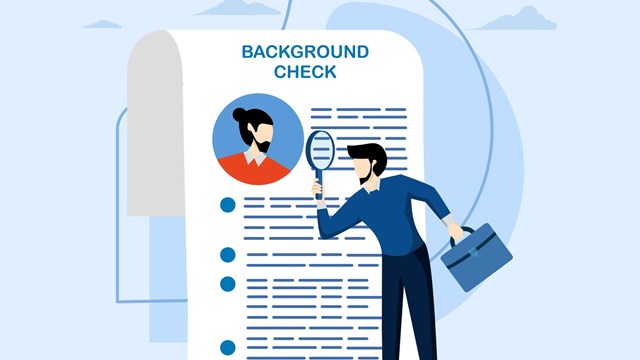
The Attorney General is the chief legal officer of the State of New York, and the head of the New York State Government’s Department of Law, often referred to as the Attorney General’s Office. The office traces its history all the way back to 1626, when New York was still under Dutch colonial rule. The current Attorney General is Eric Schneiderman, who was elected to the post in 2010.
As New York’s chief lawyer, the Attorney General (AG) and his office oversee many aspects of our daily lives, including the approval of offering plans for co-op and condominium buildings – both conversions of existing properties and newly-constructed ones. The Attorney General’s office is there to protect the buyer, and to make sure the sponsor/seller is conforming to the terms of the offering plan at all points in the process, from beginning to end.
According to its website, the AG’s office describes its role vis-a-vis co-ops and condos as follows: “The Attorney General‘s office regulates the offer and sale of real estate securities (which includes shares in co-ops) by the sponsor. If the sponsor of the co-op is still controlling the board of directors, or is not keeping the commitments which it made in the offering plan, the Attorney General’s Real Estate Finance Bureau may have jurisdiction.”
The AG and Your Co-op
What happens after your building’s offering plan goes into effect? What ongoing relationship does the Attorney General’s office have with your condo or co-op? Andrew Freedland, an attorney with Anderson Kill, a law firm based in New York that regularly interfaces with the AG’s office says, “The Attorney General’s office doesn’t have a per se relationship with co-op corporations or condo associations. Their relationship is really with the sponsor. The AG’s role in co-op and condo life is to act as a watchdog, to make sure that the offerings put forward within the State of New York are fair and honest representations of what is going to be purchased by those folks who buy units, whether in a co-op, condo or HOA. Once any actual board has no sponsor reps, there’s no real, direct interaction. The AG’s interactions are with the sponsor.”
Stephen Boonshoft, an attorney at the Manhattan-based Robinson Brog Leinwand Greene Genovese & Gluck, P.C., concurs with Freedland, adding the following: “Attorney General involvement is as watchdog over sponsors. [For co-ops], the offering plan is under the Martin Act as an offering of securities. Under the law it’s an offering document, and under the law, in the event the sponsor doesn’t comply with the terms of the offering, the AG can sanction the sponsor, depending on the level of non-compliance.”
Freedland points out that, “Many new condominiums and co-ops will have representatives on the board who are members of the sponsor group. In such situations, there is more interaction between the board and the AG’s office, because the AG is seeking to make sure that the sponsor is really providing a fair and honest plan, as well as executing the plan. If you have a sponsor rep who is somehow converting funds from the co-op or condo, the AG will get involved. The continuing oversight responsibility is about the sponsor and the sponsor’s behaviors – not about the owners going forward. If owners have issues among themselves, they have other types of recourse, including the courts.”
Sponsor Rights and Board Seats
“Sponsor voting rights are usually restricted by the New York State Department of Law, in that sponsors are not permitted to control, elect, and/or designate a majority of the directors on a co-op’s board for more than the sooner of five years from the date of the closing of the co-op, or when the sponsor owns less than 50 percent of the unsold shares of the co-op,” says Marc Schneider, an attorney with Schneider Buchel, LLP, which has offices in Manhattan and Long Island.
“Once the control period has passed, you must turn to the governing documents to determine what rights the sponsor has with respect to voting for directors in an election for the co-op’s board of directors,” he adds. “In that regard, there are typically two types of provisions which govern the sponsor’s rights: a voting control clause and a ‘will not elect’ clause.”
According to Schneider: “A voting control clause is one which permits the sponsor to vote their shares for the election of directors in any manner they choose (for all candidates) – provided the sponsor did not nominate the candidates and the candidates are not related parties to the sponsor. In that regard, voting control clauses are very similar to the New York State Department of Law regulation discussed above. An example of such a clause is as follows: ‘Sponsor may vote for all candidates up for election, but no more than three members shall serve by reason of the votes cast by sponsor.’”
AG Oversight of Sponsors
“The AG’s ongoing supervisory role,” says Freedland, “is that as long as a sponsor owns units within a building, that sponsor – if he wants to continue to sell units – must file an annual amendment with the Attorney General’s office providing certain facts and circumstances about the co-op or condo, and his own financial situation. The sponsor must file an amendment every year to keep the plan active.” Boonshoft adds that, “The co-op or condo board can make a complaint to the AG if they believe the sponsor has violated the terms of the offering.”
To complete the required annual amendment to the offering plan, the Attorney General’s office requires certain information to be filed – some of which comes directly from the sponsor, and some which must be supplied to the sponsor by the co-op or condominium board. Items required include: the identity of all principals of the sponsor; how many units they own; what percentage of the total units they own; identification of the actual units; identification of the maintenance charges for those units; and identification of the rents received for those units, if they are occupied by renters.
The co-op or condo board will also need to supply the sponsor with the annual financial statements for the co-op or condo; the list of directors or board members; a proposed budget for the coming year; and the current year and information on the status of the underlying permanent mortgage if the property is a co-op. These requirements are an impetus for the sponsor to remain on good terms with the unit owners and the board, because if the board refuses to supply this information due to conflict with the sponsor, the AG’s office may reject the sponsor’s required annual amendment.
“The main reason for these filings is to allow the continued sale of units under the plan,” says Freedland. “This disclosure is a protection for the buyer.” One interesting exception is that a sponsor doesn’t have to file amendments if they are only holding units, and not selling them.
Boonshoft says, “The Department of Law has become more shareholder-friendly over the years, more buyer-friendly. It’s a natural evolution over time. They are a friend of owners and buyers. They are aware of problems that have occurred in the past, and have moved to prevent the same problems in the future. They understand their role today better than they did 30 years ago.”
The AG’s office is there to protect co-op and condo owners in the event a sponsor has misrepresented itself, resulting in a possible loss. It is not there to referee differences between board members, or between board members and shareholders or unit owners. It is also a great source of information on any legal aspect of co-op or condo life.
A.J. Sidransky is a staff writer/reporter for The Cooperator, as well as a published novelist.






Comments
Leave a Comment